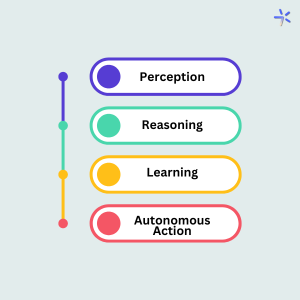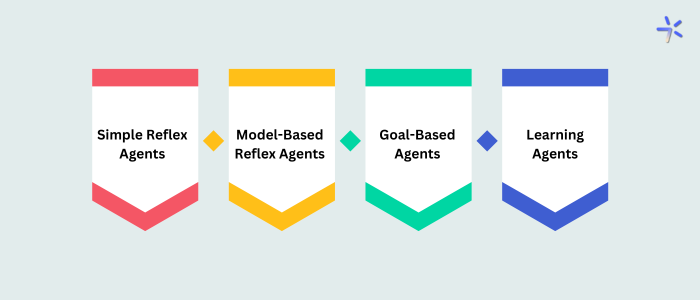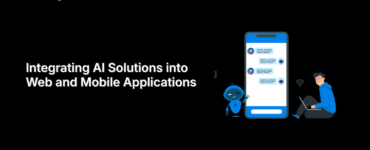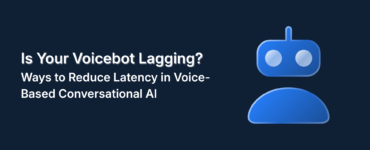In the modern age of technology, intelligent agents are significantly advancing the capabilities of artificial intelligence (AI), allowing machines to interact with their environments autonomously. These agents are not limited to futuristic science fiction scenarios; they exist today in the form of virtual assistants, self-driving cars, and even smart home devices. Their ability to perceive, reason, learn, and act makes them pivotal in transforming industries ranging from healthcare to finance.
This article explores intelligent agents in detail, focusing on their structure, types, characteristics, and future applications across various sectors. We will also answer common questions surrounding AI agents and provide real-world examples to illustrate their importance.
What is an Intelligent Agent in AI?
An intelligent agent in AI is a system that can perceive its environment, process information, and take autonomous actions to achieve predefined goals. Unlike traditional software that only follows specific instructions, intelligent agent in AI make decisions and adapt based on real-time data, improving over time through learning mechanisms.
These agents can be software-based (like chatbots) or embodied in physical devices (like robots or autonomous cars). Their functionality is defined by their capacity to analyze data, learn from interactions, and take informed actions to improve outcomes.
These agents are used extensively in artificial intelligence development and serve as a foundation for creating complex AI systems. If you’re interested in developing custom AI solutions, learn more about our Artificial Intelligence Development Services.
Key Characteristics of Intelligent Agents
Several defining characteristics make intelligent agents stand out in the realm of AI:
- Perception: Intelligent agents continuously perceive their environment using data sensors or external inputs. For example, AI in a self-driving car collects data from cameras, GPS, and LiDAR sensors to navigate streets.
- Reasoning: These agents process the collected data to form strategies and infer logical outcomes. This reasoning capability is what enables AI-powered systems to make decisions in complex environments.
- Learning: One of the most critical features is their ability to learn from experience. Through algorithms and machine learning techniques, these systems become more efficient over time.
- Autonomous Action: Intelligent agents are designed to take actions without human intervention, making them indispensable in fields requiring high levels of automation, such as robotics and autonomous vehicles.

Structure of Intelligent Agents
The structure of intelligent agents is composed of various components that allow them to perceive, reason, and act. These include:
- Sensors: Used to gather data from the environment. For software-based agents, sensors could be user input, while for robots, they might be physical sensors.
- Effectors: These components interact with the environment. In robots, effectors could be motors or actuators enabling movement. For software-based intelligent agents, effectors may take the form of APIs or commands that trigger responses or actions in a digital environment.
- Decision-Making Unit: This is the core of the agent where all reasoning and learning happen. It processes data from the sensors, evaluates potential actions, and decides on the best course of action.
- Learning Module: A continuous feedback loop allows the agent to refine its decision-making process based on past actions, making future decisions more effective.
Types of Intelligent Agents in AI
Intelligent agents come in various forms depending on the complexity of the tasks they are designed to handle. Here are the key types:
- Simple Reflex Agents: These agents operate purely on a set of predefined rules and do not consider the history of their actions. For example, a basic customer service chatbot that answers FAQs without learning from past interactions.
- Model-Based Reflex Agents: These agents maintain an internal model of the world, which helps them handle more complex situations by considering the current state of their environment.
- Goal-Based Agents: Focused on achieving specific goals, these agents choose actions that move them closer to their objectives. Autonomous vehicles that aim to transport passengers safely are examples of goal-based agents.
- Learning Agents: The most advanced type, learning agents, improve their performance over time by continuously learning from their environment. These agents are integral to generative AI development, which is at the frontier of innovation. Learn more about how we can help your business leverage Generative AI Development Services.

Real-World Applications of Intelligent Agents
Intelligent agents have a wide range of applications in various industries:
1. Virtual Assistants
Virtual assistants like Siri, Alexa, and Google Assistant are the most well-known examples. They assist users by performing tasks such as answering questions, setting reminders, and controlling smart home devices.
2. Chatbots and Conversational AI
Many businesses now deploy chatbots that can handle customer queries autonomously. These intelligent agents help improve user engagement and streamline operations, offering 24/7 customer service without human intervention.
3. Autonomous Vehicles
One of the most groundbreaking applications is in self-driving cars. These vehicles rely on a combination of sensors and AI to make real-time decisions, navigating roads safely without human input.
4. AI in Healthcare
In the healthcare sector, ai agents assist with diagnostics, patient management, and personalized treatment plans. AI-powered agents can analyze large datasets of medical information to suggest treatment options or flag potential risks.
5. Financial Services
From fraud detection to algorithmic trading, financial institutions are leveraging to process data, reduce errors, and enhance decision-making. These agents are increasingly used in predictive analytics, helping businesses forecast market trends and customer behaviors.
6. Game AI
In video games, AI agents function as non-player characters (NPCs) or opponents, creating dynamic and adaptive gameplay. These agents adjust their behavior based on the player’s actions, enhancing the gaming experience.
Also Read: How AI transforming the Travel and Hospitality Industry
The Future of Intelligent Agents in AI
The future of intelligent agents promises to bring even more advancements across a variety of industries. The ongoing integration of AI systems is expected to:
- Revolutionize Healthcare: AI agents will enable more personalized and predictive treatments, optimizing patient care and hospital management.
- Transform Financial Systems: Automation in banking and finance will continue to evolve, minimizing fraud and enhancing the accuracy of predictions in financial markets.
- Advance Autonomous Technologies: Robotics, drones, and other autonomous systems will become more prevalent, performing tasks that were once deemed too complex or dangerous for humans.
- Generative AI Applications: As generative AI becomes more prominent, intelligent agents will evolve to create unique, innovative solutions across industries. Businesses can explore Generative AI to design creative models, products, and services that were previously unimaginable.
FAQs: Common Questions About Intelligent Agents
1. What are intelligent agents in AI?
Intelligent agents are systems that can perceive, reason, and act autonomously to achieve specific goals by processing real-time data.
2. What are the different types of intelligent agents?
The four main types are Simple Reflex Agents, Model-Based Reflex Agents, Goal-Based Agents, and Learning Agents.
3. How do intelligent agents work in real life?
They are used in virtual assistants, chatbots, self-driving cars, healthcare diagnostics, financial trading, and video games.
4. Why are intelligent agents important in AI development?
Intelligent agents bring autonomy and learning capabilities, enabling businesses to automate tasks, reduce costs, and improve efficiency.
5. What is the difference between simple and learning agents?
Simple agents follow predefined rules, while learning agents improve over time by analyzing past actions and refining future decisions.
6. How are intelligent agents used in healthcare?
AI agents in healthcare assist with diagnostics, patient management, and personalized treatments by analyzing large datasets for actionable insights.
7. How do intelligent agents improve customer service?
Through chatbots and virtual assistants, intelligent agents offer instant, personalized responses to user queries, enhancing customer satisfaction.
8. What is the role of generative AI in intelligent agents?
Generative AI enables to create new, innovative content and solutions, improving creativity and adaptability in business applications.




